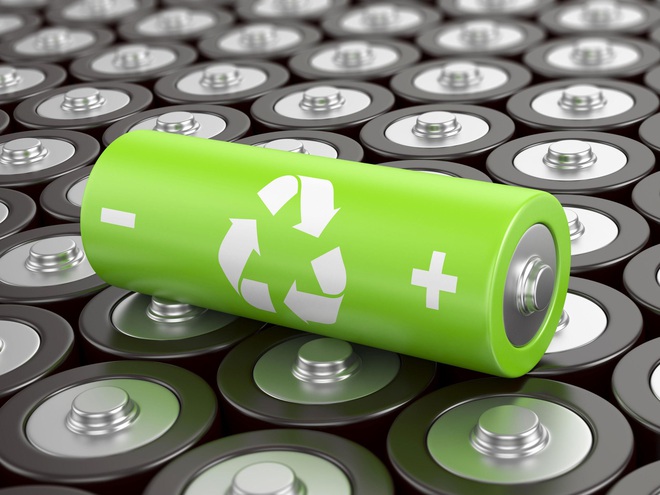Applying new technology, batteries made from recycled materials are as effective as new hard batteries, even longer life
- Tram Ho
Ironically, the mining process that produces many toxic by-products directly fuels the transition from fuel-powered vehicles to electric vehicles. If we can recycle battery materials, electric vehicle technology will be even greener; We will both eliminate tons of waste that occupy a large part of the land, and cut down on the amount of energy and raw materials used in the production of batteries.
However, when the electric vehicle battery recycling industry was just beginning to take shape, car manufacturers were not very interested in recycled materials. “ In general, there is a stereotype that recycled materials will not be as good as new ones, ” said Yan Wang, a professor of mechanical engineering at the Worcester Institute of Technology. “ Battery companies are still hesitant to make batteries from recycled materials .”

In the new study, Professor Wang and a team of colleagues from the American Advanced Battery Foundation (USABC) and battery manufacturer A123 Systems have put aside the worries of the energy storage industry. Research results, published in the journal Joule, show that batteries using recycled cathode are still good, even more efficient than batteries made from new materials.
The team of scientists experimented with recycled NMC111 cathode, the most widely available cathode using nickel, manganese and cobalt. The electrical equipment was made through a new (patented) recycling technology by Battery Resources, a startup co-founded by Mr. Wang. Currently, Battery Resources has begun to be commercialized.
Looking deeper into the structure of the recycled material, the team found more openings – that is, more pathways that allow lithium ions to flow through. As a result, the energy density of batteries made from recycled materials is similar to that of mass-market batteries, with even 53% higher charging cycles of recycled batteries.
While not tested directly on vehicles, the recycled batteries used in the study have passed testing on a comparable industrial scale. The qualified line shows that the battery meets the conditions required to be assembled into an electric vehicle. According to Professor Wang, this is proof that a cathode made from recycled materials can completely replace raw materials.

The process of mining rare earths used in batteries has a great impact on the environment.
Electric vehicle batteries are complex, requiring a not-so-easy recycling process: the process will require a lot of energy, or you’ll have to shred the battery and dump the product into acid. The battery recycling companies will use the above methods to separate the battery components and sell them back to the battery manufacturers.
But according to Professor Wang, the real value of electric vehicle batteries lies in the cathode. The cathode material, which is a combination of nickel, manganese and cobalt, is a combination of particles of matter with a specific size and structure. Battery Resources recycling technology can separate materials that are ready for cathode production. That makes Professor Wang’s startup much more efficient than crushing the entire battery system.
Battery Resources has begun selling small batches of the material to a number of battery manufacturers. They plan to open their first commercial-scale plant in 2022, with the capacity to process 10,000 tons of batteries. In September, Battery Resources raised $70 million in funding, ample financial resources allowing Battery Resources to open two more recycling facilities in Europe next year.
According to Spectrum
Source : Genk
